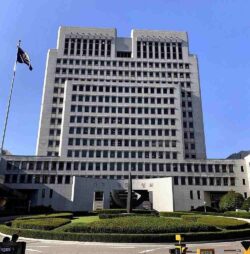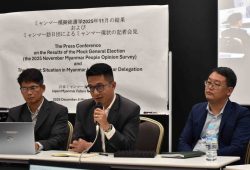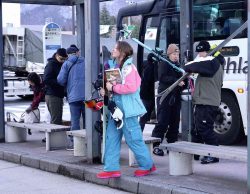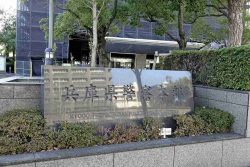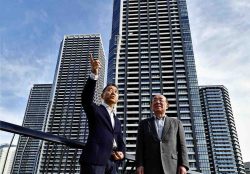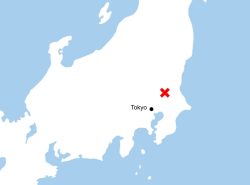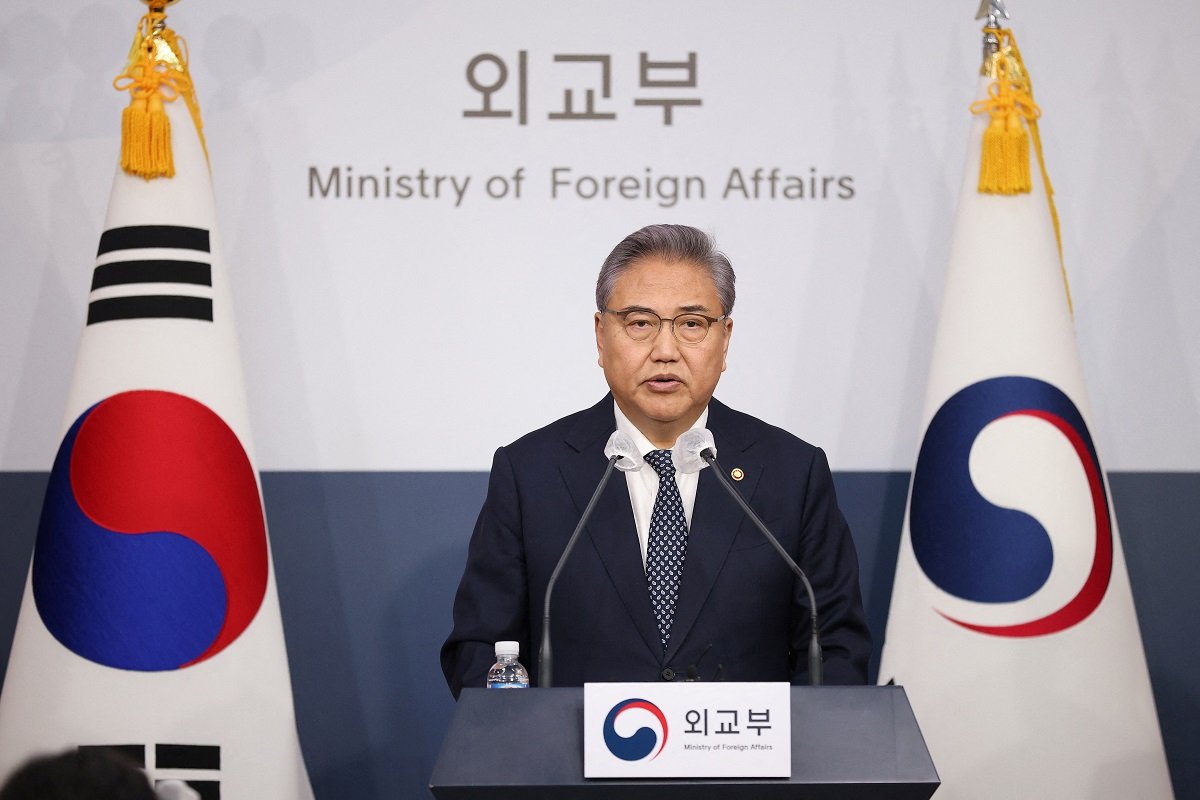
South Korean Foreign Minister Park Jin speaks during a press conference in Seoul on Monday.
17:48 JST, March 6, 2023
SEOUL — South Korean Foreign Minister Park Jin on Monday announced a plan to resolve the issue of lawsuits regarding former wartime requisitioned workers from the Korean Peninsula, saying that a South Korean foundation will pay compensation in lieu of Japanese companies that were ordered to do so.
The announcement is a significant move toward resolving the issue, the largest thorn in the bilateral relations that have worsened in recent years.
At a press conference at the South Korean Foreign Ministry in Seoul, Park emphasized Japan-South Korea cooperation as being crucial in various fields, especially regarding the economy and security. He added that the long-cool relations should no longer be left unattended and the vicious circle must be ended for his people for the sake of the national interest.
In 2018, the South Korean Supreme Court finalized the judgment for the plaintiffs in three lawsuits filed by former requisitioned workers and others against Nippon Steel & Sumitomo Metal Corp., now Nippon Steel Corp., and Mitsubishi Heavy Industries, Ltd. As a result, the two companies became obliged to pay compensation ranging from 80 million won to 150 million won (about ¥8.4 million to ¥16 million) per plaintiff to a total of 14 plaintiffs.
Under South Korea’s plan, a foundation called the Foundation for Victims of Forced Mobilization by Imperial Japan, which is under the umbrella of the South Korean Interior and Safety Ministry, will pay the equivalent compensation including interest.
Seoul’s plan proposes that the resources will be financed by “voluntary donations” from South Korean companies. According to South Korean government sources, companies such as steel giant Posco, which benefited from economic cooperation under the 1965 Agreement on the Settlement of Problems concerning Property and Claims and on Economic Cooperation between Japan and the Republic of Korea, are expected to make donations. There is no requirement for the Japanese companies named in the lawsuit to make contributions.
The Japanese government has maintained its position that the issue of requisitioned workers was “settled completely and finally” under the 1965 agreement and has claimed that the South Korean top court’s rulings were in violation of international law. As long as the Japanese companies named in the lawsuit do not have to make contributions to the foundation, the plan would be acceptable to the Japanese side.
Many other lawsuits in which former requisitioned workers are among those seeking compensation and other remedies from Japanese companies are underway in South Korean courts. The plan by the South Korean government says the foundation will pay compensation in lieu of Japanese firms that are defendants in those cases as well if judgments for the plaintiffs are finalized.
The South Korean government announced the outlines of the plan in January. At the press conference, Park said many bereaved families have shown understanding for the government’s plan. But some plaintiffs and bereaved families are still seeking apologies and compensation from Japanese companies. The South Korean government says it will continue to persuade those people to accept the plan.
A resolution to the issue of former wartime requisitioned workers began to move forward after South Korean President Yoon Suk-yeol, who is eager to mend relations with Japan, took office in May last year.
Currently, the plaintiffs who won the lawsuits finalized in 2018 are taking steps to liquidate South Korea-based assets of Nippon Steel and MHI. Believing that such liquidation will further worsen bilateral relations, foreign affairs officials of Tokyo and Seoul have been discussing resolution measures that can be accepted by both sides.
"World" POPULAR ARTICLE
-
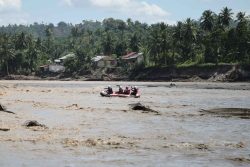
8 Japanese Nationals Stranded on Indonesia’s Sumatra Island
-
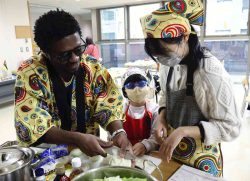
Mozambican Cooking Class Held in Matsuyama, Ehime Pref.; Participants Don Aprons, Bandanas Made from Traditional Mozambique Fabric
-

China to Impose Sanctions on Shigeru Iwasaki, Former Head of Japan’s Self-Defense Forces, Who Serves as Adviser to Taiwan’s Executive Branch
-

China Steps Up ‘Wolf Warrior’ Diplomacy Against Japan, Hurling Accusation About Plutonium Stockpile
-

U.S. Senate Resolution Backs Japan, Condemns China’s Pressure
JN ACCESS RANKING
-

Keidanren Chairman Yoshinobu Tsutsui Visits Kashiwazaki-Kariwa Nuclear Power Plant; Inspects New Emergency Safety System
-

Imports of Rare Earths from China Facing Delays, May Be Caused by Deterioration of Japan-China Relations
-

University of Tokyo Professor Discusses Japanese Economic Security in Interview Ahead of Forum
-

Japan Pulls out of Vietnam Nuclear Project, Complicating Hanoi’s Power Plans
-

Govt Aims to Expand NISA Program Lineup, Abolish Age Restriction



